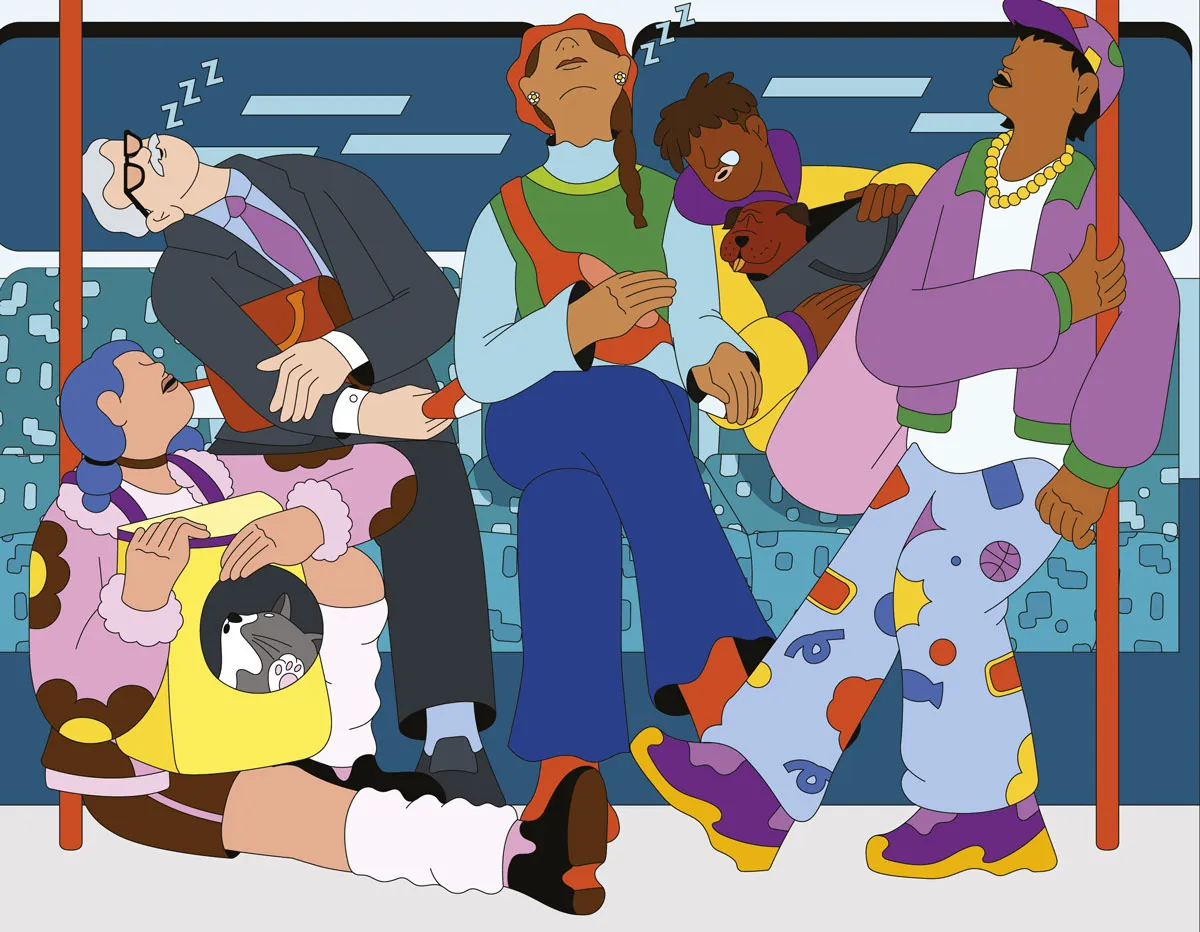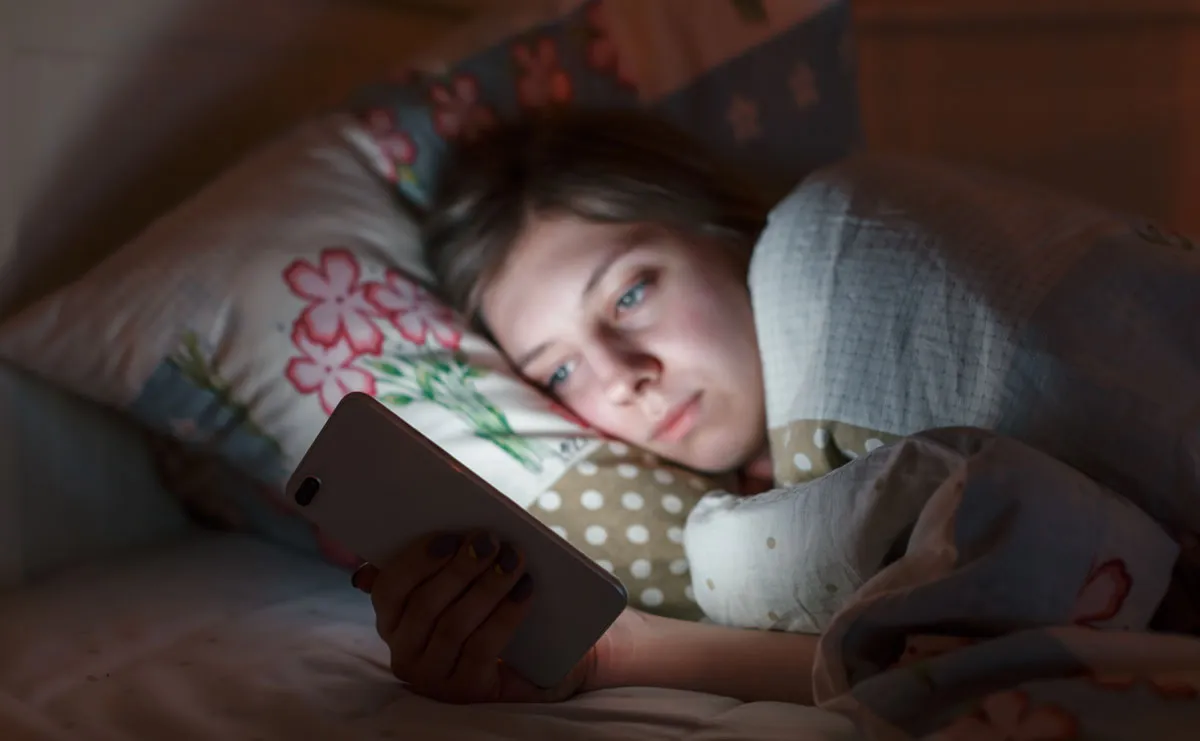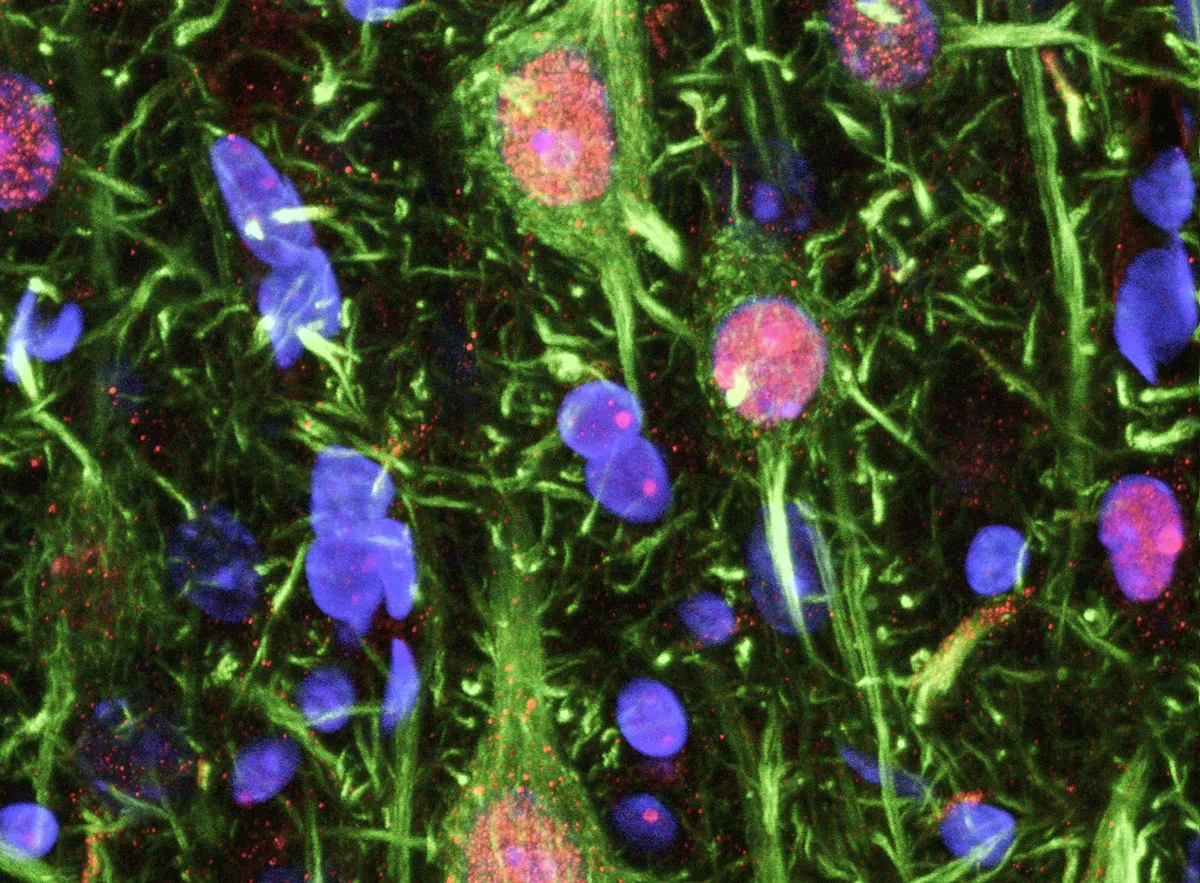There’s no denying it: my New Year’s resolution hasn’t gone well. Only a few months into 2023, I’ve yet to catch up on what feels like months of lost sleep to become a healthier, more energetic super-being. My consolation, each dark winter morning as I reach for the snooze button rather than the gym clothes, is that at least it’s not just me.
In a YouGov poll of adults in Great Britain, published at the beginning of last year, one in eight people said they felt tired “all the time”, and a further quarter were tired “most of the time”. Parents of kids under 18 were the weariest of them all, but childless adults and parents of older children reported feeling wiped out too.
Asked about what they’d give for some extra shuteye, roughly half of people polled said they’d opt for another hour of sleep instead of £20 in cash, while more than a third would choose it over sex.
A simple explanation for all this tiredness is that we’re not getting enough time in bed. Surveys suggest that some 40 per cent of British adults are regularly getting less than the minimum seven hours of sleep recommended by the NHS.
Around 5 per cent report getting four hours or less – a level of sleep deprivation that can have dangerous consequences: one study found that people driving after less than four hours sleep had a more than 10-fold increased risk of road accidents compared to drivers who got at least seven.
The long-term view isn’t any better. Research has linked sleeping less than the recommended minimum to an elevated risk of myriad chronic diseases, including diabetes, cancer, heart disease, depression and dementia.

Such is the concern about this apparent sleeplessness epidemic that organisations like the Royal Society for Public Health have called for a national "sleep strategy" and better public education about how much we should be aiming for.
Yet while there’s clearly such a thing as too little sleep, studies of sleep duration don’t tell the whole story.
Contrary to popular perception, there’s scant evidence that we’re averaging less slumber now than in the past, says Prof John Groeger, a psychologist at Nottingham Trent University.
Using surveys, he and his colleagues found that Brits in the early 2000s were clocking just over seven hours a night on average – roughly what people said they were getting in the 1960s.
Although self-reported data need interpreting with caution, surveys in other countries have turned up similar findings, detecting small or no reductions in the average amount of sleep over time.
Research on so-called ‘pre-industrialised’ societies challenges the idea that our ancestors spent more time snoozing, Groeger says.
A 2015 study that monitored sleep patterns in rural communities in Bolivia, Namibia and Tanzania found that adults tended to get between 5.7 to 7.1 hours a night.
How much sleep do we need?
While seven hours is a sensible minimum to aim for, scientists don’t know exactly how much the average person in 2023 needs, says Prof Kenneth Wright, a sleep and circadian scientist at the University of Colorado Boulder.
The amount we require can be affected by genetics and lifestyle, and changes as we age. Crucially, too, “sleep duration is only one component of sleep health. The timing of our sleep is important, the regularity of our sleep is important, the quality of that sleep is important.”
Rather than fixating on how much we’re getting, experts suggest that people pay attention to how they feel when they’re awake.
A bit of grogginess is normal after a wild night out. But repeatedly dozing off during the day or feeling washed out for days at a time could signal a problem, says psychologist Michael V Vitiello, a Professor Emeritus at the University of Washington who studies sleep and sleep disorders in ageing.
Read more:
- How hidden 'overtiredness' is ruining your sleep – and how to fix it
- Can’t stop your brain racing at 3am? Try these suggestions from a GP
In some cases, these symptoms could mean a sleep disorder or an underlying health condition.
According to the NHS, around one-third of the population will experience insomnia – consistent difficulty falling and staying asleep – at least once. The disorder is likely underdiagnosed, says Dr Suzanne Bertisch, a sleep researcher and physician at Brigham and Women’s Hospital and Harvard Medical School.
Unfortunately, she adds, extreme exhaustion can make it harder to recognise you’re exhausted.
Stress, illness and disruption caused by COVID-19 may have led more people to struggle with insomnia, at least in the short-term.
Vitiello and others found that, while worldwide cases of severe and moderate insomnia stayed fairly level in 2020 and 2021, the number of people reporting mild, or ‘subthreshold’ symptoms went up.
Obstructive sleep apnoea, a disorder where soft parts of the throat flop over airways and temporarily interrupt breathing, also seems to be on the rise in the UK. Doctors have linked this increase to growing rates of obesity, which makes airway obstruction more likely.
Of course, daytime tiredness doesn’t always signal a sleep disorder: you might just be suffering the effects of a Western lifestyle.
For example, alcohol might make people fall asleep faster, but also messes with the structure of your sleep. A drink or two close to bedtime can lead to less rapid-eye movement (REM) sleep – the phase typically associated with dreaming – and more awakenings during the night.
Mobile phones, which some three-quarters of Britons admit to keeping in their bedrooms overnight, have a lot to answer for, too. Both the light from an electronic device’s screen and the mental stimulation from the information you’re scrolling through can contribute to poor sleep, Groeger says.

On top of this, many people have to deal with work demands or caring duties that make it all but impossible to get an uninterrupted night’s rest.
Whatever the cause of sleep disruption, the verdict remains the same: it’s affecting how the rest of your body functions, and not always in the ways you expect.
For instance, while you might immediately attribute dopiness during the day to a rough night, you might not think to blame your eating habits on a bad sleep, too. Yet studies have revealed that sleep deprivation can alter the hormonal and neural pathways controlling appetite and fat storage, and may promote overeating and weight gain.
Newer research is turning up a string of connections between sleep-regulating brain circuits and the immune system, the waste-clearance systems in your body’s organs and even the bacteria living in your gut.
“We’re just beginning to understand how interactions among these systems work,” Wright says.
Read more:
- Why do I always find things to do late at night?
- Why do I always come up with my best ideas when I’m trying to get to sleep?
How to get back to sleep
Unsurprisingly, the high prevalence of sleep complaints and our worry about them has been a boon to the field of sleep medicine and the industry built around it.
An estimate by one market research company last year valued the global sleep aids market, with all its medicines, supplements, diagnostic devices and specialised mattresses at some $65bn (£52bn approx).
Many of these products have little or no scientific data to back them up. For instance, while anecdotal evidence has highlighted possible benefits of herbal and dietary supplements such as valerian and melatonin, the clinical evidence is underwhelming.
Most of the supplements that are available over the counter are useless for improving your sleep, Vitiello says (although melatonin can help lessen jet lag).
“They’re placebos. If you’re taking them and you think they’re improving your sleep, that’s just fine, carry on. But just recognise that there’s no data to support their use.”
That said, there have been some major improvements in sleep treatments in the last few years, especially for people with clinically diagnosed disorders, says Bertisch, who has consulted for companies developing therapies.
Insomniacs have often been given sleep-inducing sedatives to help them doze off, but a new class of prescription drugs called orexin receptor antagonists instead target the brain circuits that keep the body awake.
Specifically, they block the effects of orexin, a chemical messenger that keeps you alert, thus making it easier to fall asleep.

Researchers suggest that this kind of treatment will be less likely than older medications to cause side effects such as confusion or memory problems during the day.
The latest, daridorexant, was approved in 2022 in the US and EU for patients who have been suffering with insomnia for at least three months. It’s scheduled to become available in the UK later this year.
Cognitive behavioural therapy, a treatment that helps people identify and change unhelpful behaviours and thought patterns, has also repeatedly shown benefits in clinical trials of insomnia patients, Bertisch says.
Therapy doesn’t have to be face-to-face with a psychologist: an app called Sleepio that’s been shown to be effective in reducing insomnia was made available through the NHS last year.
People with sleep apnoea have more options than before too, with new breathing-aid devices to help keep their airways open – though doctors often first recommend weight loss when the condition is linked to obesity.
Lifestyle changes that can help you sleep better
If a sleep disorder isn’t what’s causing your tiredness, you’re most likely to see benefits from changing your lifestyle. Getting lots of light during the day can help keep your body clock on track, making it easier to get into a regular sleep rhythm and feel better when you’re awake, says Wright.
He and his colleagues recently published recommendations on daily light exposure, including advice to dim light levels in the three hours before bedtime and to make your sleeping environment as dark as possible.
Other commonly recommended habits – doing regular exercise, limiting caffeine, trying to get up at the same time each morning and avoiding work and stress close to bedtime – may be boring, but research shows they’re likely to be effective, says Groeger.
Read more:
- What’s the best thing to do when you can’t sleep?
- Poor quality sleep may scupper our attempts to keep weight off
Clinical trials have found that getting people to do bouts of weight training, aerobics or other physical activity often leads to moderate improvements in sleep quality, for example.
Although most of these studies are based on participants’ subjective reports of how well they slumbered, some use brain-monitoring equipment that tracks how often sleep is interrupted and assesses sleep structure.
These recommendations also tap into a popular idea in the research community: that timing, not just of sleep but of daily activity and rest more generally, plays a critical role in human health.
Wright is one of many researchers currently working on this idea. His lab has found that the damaging effects of shift work – a notorious sleep disruptor linked to increased risk of cancer, diabetes and other chronic conditions – may stem partly from disruption to the normal timing of meals and knock-on effects on metabolism and the immune system.
A better understanding of these daily rhythms could help scientists develop new therapies, says Wright, who has consulted for the UK-based pharmaceutical company Circadian Therapeutics. “That may afford us opportunities to go ahead and manipulate those systems to improve health.”
Why you shouldn't obsess over your sleep score
In the meantime, one thing experts recommend you don’t do is obsess about your shuteye. That might sound like a tall order, given all of the above. But while it’s important to prioritise good sleep, there’s no need to dive into data from smartwatches or phone apps to try to understand every minute of every night.
Many personal trackers produce unreliable data anyway, particularly for anything more complex than sleep duration, says Bertisch.
When it comes to delineating sleep stages, for example, scientists will use brain monitoring, eye tracking, and other tech to determine when someone is dozing off, when they’re dreaming, and so on.
Wrist-worn gadgets instead rely on proxies such as heart rate and how much you’re tossing and turning. The results are laughably inaccurate by comparison, she says.
Poring over this information can have the opposite effect you want it to, Bertisch adds. Physicians “have seen the downside of people becoming obsessive and concerned about their sleep – and actually causing worse sleep problems, because they’re worried about it.”
Researchers say it can be helpful instead for people to seek out behavioural tricks or habits that work for them, whether that’s reserving time at night for winding down or getting outside first thing in the morning. Establishing a routine that you can stick to is key, Vitiello says.
“The simplest advice I can give is: get regular sleep time with regular hours and really don’t vary very much.” And try, he adds, to get rid of the bad habits. “Pepperoni pizzas in bed just before you go to sleep are probably not the way to go.”
Now there’s a New Year’s resolution.
About our experts
Michael V Vitiello is a professor of psychiatry and behavioural sciences at the University of Washington. He studies the neuroscience of sleep, investigating the causes, consequences and treatments of age-related disturbances in sleep, circadian rhythms and cognitive function. He serves as chair of the Sleep Disorder Research Advisory Board, part of the US National Center for Sleep Disorders Research.
Kenneth Wright is a professor of integrative physiology at the University of Colorado Boulder. He mainly studies the health consequences of insufficient sleep and circadian misalignment. His work has been published in journals including PLOS Biology and Sleep.
John Groeger is a professor of psychology at Nottingham Trent University, and a fellow of the British Psychological Society. He is also a former honorary General Secretary of the British Psychological Society.
Suzanne Bertisch is an assistant professor in medicine at Harvard Medical School. She is also clinical director of behavioural sleep medicine at the university.
Read more: